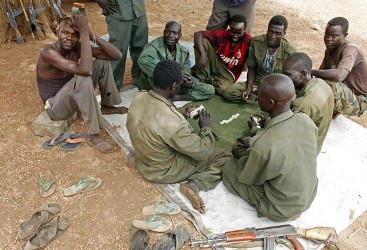Sudan to hold direct political talks with SPLM-N rebels, says spokesperson
July 25, 2012 (KHARTOUM) – The Sudanese government and the rebel Sudan People’s Liberation Movement North (SPLM-N) are expected to hold direct political talks in Addis Ababa on Thursday, said Sidiq Mutrif, the spokesperson of the Khartoum negotiating team.

Since then, the rebel group along with three rebel groups in Darfur have formed an alliance, called the Sudan Revolutionary Front (SRF) aiming to topple Khartoum’s regime. The Front also rejects separate talks and called on the international community to support a comprehensive process.
However, the UN resolution 2046 provides for direct talks between the government and the SPLM-N to end the current conflict in the two southern Sudanese states. The Security Council emphasises that the talks will be based on the 28 June framework. It also demands Sudan to allow humanitarian access to rebel held areas.
Speaking to reporters in the Ethiopian capital, Mutrif said the humanitarian talks between his government’s delegation and SPLM-N may reach a deal over this issue on Thursday. The talks are based on the agreement the two parties signed with the UN, African Union and Arab League.
Mutrif disclosed that the political track in the process should start tomorrow. He went further to say the political negotiations “will be in line with the framework defined by the African Union road map and the resolution 2046”.
The official spokesperson did not clearly say that his government would accept the 28 June 2011 framework but mentioned the resolution 2046 which refers to the deal rejected by President al-Bashir.
Nonetheless, a reliable source in Addis Ababa told Sudan Tribune that the talks would begin on Friday, pointing out that another negotiating delegation led by Kamal Obeid will fly to Addis Ababa on Thursday for discussions with the SPLM-N.
Also, the ruling National Congress Party issued a statement in the first hours of Thursday, announcing its support for direct talks with the SPLM-N.
NCP deputy chairman Nafie Ali Nafie told SUNA, after a meeting of the NCP leadership council, that the ruling party tasked Kamal Obeid to submit a number of proposals and guidelines endorsed by the leadership to serve as a guide for dialogue over the issue of the two states with all the political forces.
Obeid stated that the talks with the SPLM-N will be separate from the process taking place with the South Sudanese government. He added that the ceasefire and security arrangements should be prioritised in the talks.
Last year, the 28 June framework was rejected by the army and a radical wing in the ruling National Congress Party (NCP). The latter were repeating that this accord, which establishes a partnership between the NCP and the SPLM-N, would lead to another CPA that might dismantle what remains of Sudan.
The signing of the framework by Nafie did not prevent some in Khartoum from saying that the SPLM-N is used by Juba to destabilise the current regime and weaken it.
In New York, the UN Security Council will be briefed on Thursday on the talks taking place between Sudan and South Sudan on one side and the SPLM-N on the other. Special Envoy of the Secretary-General for Sudan and South Sudan, Haile Menkerios, will speak with the consultations meeting in Addis Ababa. However, it is not clear if the chief mediator, Thabo Mbeki, will take part in the briefing or not.
The threat of international sanctions against the parties to the conflict if they do not comply with the resolution seemingly motivated Khartoum, Juba and the SPLM-N to join the process and to make concessions in order to conclude a deal over the disputed issues.
Khartoum had a very tough stance towards the rebels of South Kordofan and Blue Nile, but finally accepted to discuss with them, as stipulated in the road map and the resolution.
The SPLM-N, on the other hand, reaffirmed recently its refusal for direct and separate talks with the Sudanese government expressing doubts about its sincerity in reaching a viable settlement over the disputed issues.
The humanitarian access to rebel held areas and the 28 framework agreement are cited, among others, by the SPLM-N to underscore Khartoum’s lack of seriousness in this regard.
Analysts, however, agree that the talks would not be easy as Khartoum might seek to get the disarmament of the rebel group first. Also, on the popular consultation, the parties might come with different interpretations on how to conduct it.
(ST)
